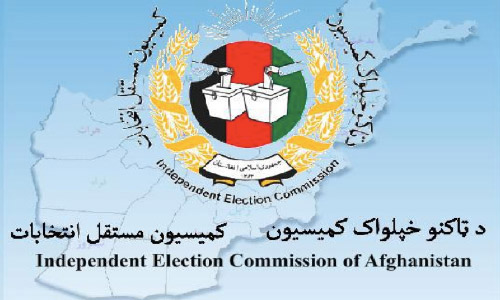Election pathology does not mean to ignore the positive points but it can be considered as a good step towards changing deficiencies to efficiencies in the future. Therefore, election pathology is a very important topic in Afghanistan to indentify the election positive and negative aspects and identify the way for future. If we do not have a good evaluation from the past, we would not be able to build on its achievements in the future and probably will repeat the same mistakes and pay unnecessary expenses. Given the emphasis of inclusive participation of people, and given the common vulnerability of the elections in young democracy of Afghanistan, it is necessary to identify some key factors which had negative impacts on the past elections.
The first and most important factor which affected the inclusiveness and soundness of few last elections is insecurity. Under the shadow of public security, all citizens from all parts of the country can participate to use their vote safely without physical and psychological fear from the enemies. While in insecure environment, it is considered like a completive ground for both government and armed opposing groups to gain more political advantages. For this reason, the electoral process has been severely damaged by insecurity condition since the beginning of current decade up to date. Unfortunately, this factor was seriously intensified near the Election Day and Taliban had unprecedentedly warned the citizens not to participate in the election.
The second factor which can seriously damage the national process is legal defectiveness. Neither the national constitution nor the electoral law has determined any specific criteria for those who nominate themselves, perhaps it is justified as open opportunity for everyone. In other countries, there are different criteria which not only introduce the most talented and loyal personality to the process but also prevent from most irregularities and unqualified candidates. One of the main factors for most electoral issues was the large number of candidates as well as nomination of persons who are not qualified to become the president of a great nation. Therefore, in addition to making amendments to the electoral law and electoral commission structure, there is also necessary to add a legal filter to assess candidates’ competences so as to refrain from unwanted issues.
Moreover, there was another flaw in process which restricted the voters from election participation while according to article No 5 of the election law the voters shall vote freely. The imposition of any direct or indirect restrictions on voters and candidates because of their language, religion, ethnicity, sex, tribe, residence and social status is prohibited in the law. Unfortunately, any unnecessary restrictions were imposed on these elections. For Example, women had restrictions to access polling stations, especially in mountainous areas. In addition, biometrics and voters’ list had a serious problem which impeded many voters from using their votes while a number of people voted without biometrics. Lack of legal clarity in this regard has not only created a lot of controversy but also affected the outcome of the election.
The third problem was lack of interest of people and electoral tickets from the election process. It took almost a complete year to form strong electoral teams. Only two or three teams could start their campaigns with rallies and speeches among their supporters. The other Afghan presidential candidates did not go the campaign and even did not have provincial trips until the last election days. Active electoral teams had limited campaigns in secure provinces such as the central areas and some region in northern and southern provinces. There were various reasons for the issue and the rumor market was also hot in the social media networks and among opponent supporters. The Free and Fair Elections Foundation of Afghanistan (FIFA) expressed concern over the low level of election campaigns, saying that the international community’s participation in the elections was low and that the organizing bodies were faced many problems.
The fourth problem was worries about poor management. In modern democratic countries, political parties, citizens, and election organizers adhere to rules and boundaries of the election process. They pay Particular attention to the candidates’ programs and manage the elections well. They strive for accuracy, integrity and proper execution as election considered the main opponent of democracy. In the post-election period, certain political practices are also followed. For example, they evaluate the inappropriate behaviors and damages happened on political elites, people, system and so on.
In regard to damages on political elites in election of Afghanistan, the election left serious consequences on social position of some traditional leaders as they could not attract the necessary votes were expected. In regard to damages on people, some of the candidate supporters did not respect code of conduct and they tried to use from any options and language which have negatively impacted on national unity. In regard to damages on rule of law, as democracy of Afghanistan is very young and we have limited experience from democratic process, we should have national and international observers in the elections. The presence of election observers in a country like Afghanistan that lacks confidence in impartiality on electoral commissions, affirms the legitimacy of the elections. Based article 102 of election law, the observers should be present in three stages: during campaign, on Election Day and during counting votes. On contrary to the ruling law, the election commission did not allow observers to be present during all steps of counting process.
Home » Opinion » Pathology of the Afghan Presidential Election
Pathology of the Afghan Presidential Election
| Mohammad Zahir Akbari

